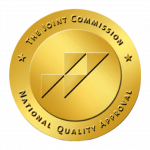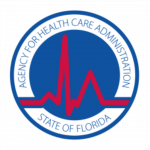Understanding Depression and Its Treatments
Home » Mental Health Treatment in Florida » Depression
Many people will experience depression at some time in their life. If you or your loved one has had a depressed mood for more than two weeks, it’s important to seek treatment. Treatment for depression in Florida is available today.
What is Depression?
Depression is a common but serious mental health disorder that affects how you feel, think, and handle daily activities. It’s characterized by persistent feelings of sadness, hopelessness, and a lack of interest or pleasure in activities once enjoyed. Other symptoms may include changes in appetite and sleep patterns, fatigue, difficulty concentrating, and thoughts of death or suicide. Depression is more than just a bout of the blues—it is a condition that requires attention and treatment.
Symptoms of Depression:
- Persistent sad, anxious, or “empty” mood
- Loss of interest or pleasure in hobbies and activities
- Changes in appetite and weight
- Trouble sleeping or sleeping too much
- Loss of energy or increased fatigue
- Difficulty concentrating, remembering, or making decisions
- Feelings of worthlessness or excessive guilt
- Thoughts of death or suicide
What are The Causes of Depression?
Depression can result from a combination of genetic, biological, environmental, and psychological factors. It can be triggered by life events such as trauma, loss of a loved one, a difficult relationship, or any stressful situation. Chronic illnesses and certain medications can also contribute to depression.
What are The Treatment Options for Depression?
Depression is treatable, and several effective treatment options are available. The right treatment plan can help you manage symptoms and improve your quality of life. Here are the most common treatments for depression:Medication
- Antidepressants: These medications can help correct chemical imbalances in the brain that contribute to depression. Common types include SSRIs, SNRIs, and atypical antidepressants.
- Mood Stabilizers and Antipsychotics: Sometimes used in conjunction with antidepressants, especially in cases of severe depression or bipolar disorder.
Psychotherapy
- Cognitive Behavioral Therapy (CBT): Focuses on changing negative thought patterns and behaviors associated with depression.
- Dialectical Behavioral Therapy (DBT): is a type of cognitive-behavioral therapy that focuses on helping individuals manage their emotions, develop healthy coping mechanisms, and improve their relationships.
- Psychotherapy: is a type of treatment that can help individuals experiencing a wide array of mental health conditions and emotional challenges.
Lifestyle Changes
- Regular Exercise: Physical activity can boost mood and energy levels.
- Healthy Diet: Eating a balanced diet can have a positive impact on your mental health.
- Sleep Hygiene: Ensuring adequate and quality sleep is crucial for mental well-being.
Hospital and Residential Treatment
- For severe cases, inpatient or residential treatment programs offer intensive care and support.
Support Groups
- Connecting with others who understand what you’re going through can provide comfort and insight.




